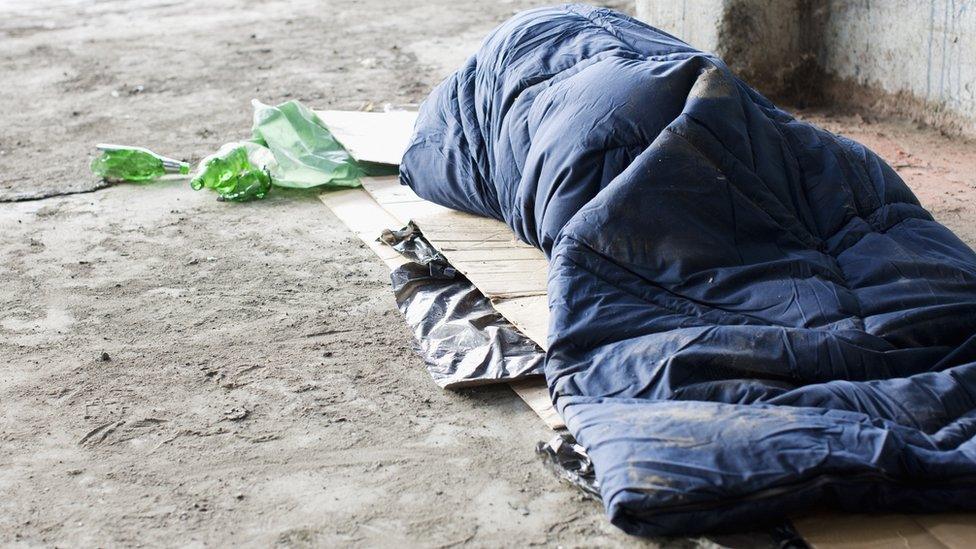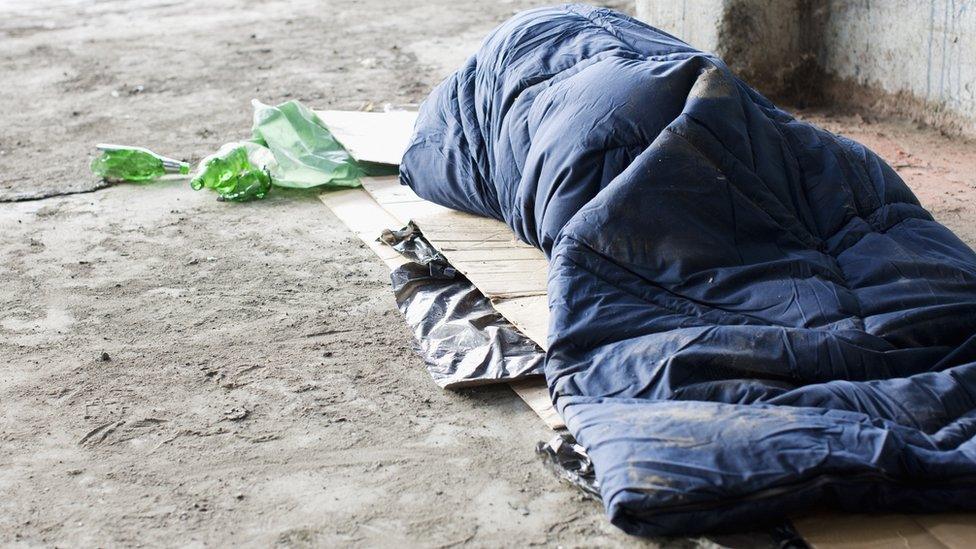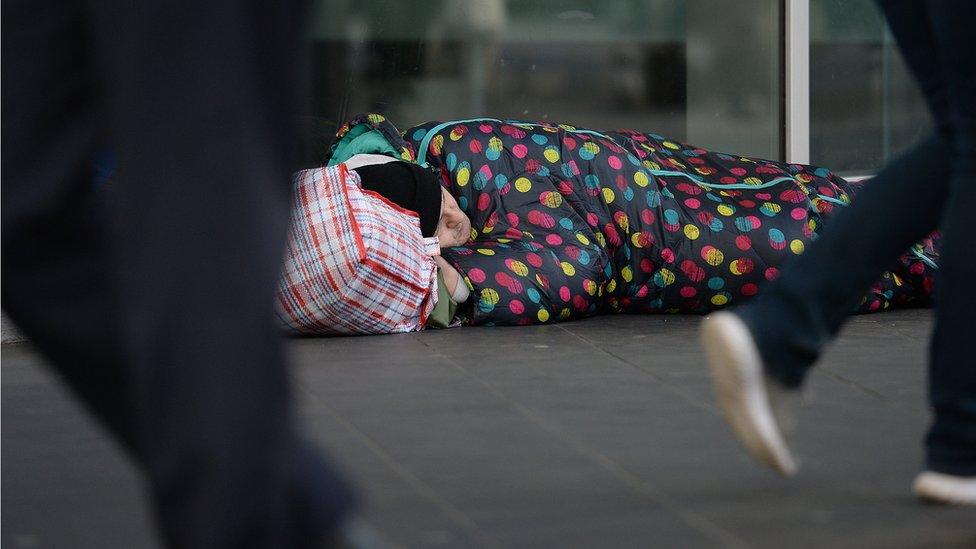Pilot scheme to help rough sleepers in West Midlands extended
- Published

The Respite Rooms in Birmingham offered temporary accommodation to women sleeping rough after fleeing domestic abuse
A pilot project where rough sleepers with complex needs are given long-term housing is being extended.
More than £2m will be invested in the Housing First scheme in the West Midlands over the next two years, the government said.
The funding is part of a national strategy that aims to end rough sleeping.
The West Midlands was one of several areas to trial the pilot along with Manchester and Liverpool.
The Respite Rooms in Birmingham offered temporary accommodation to women sleeping rough after fleeing domestic abuse as part of the project.
Under the scheme, the city council commissioned Trident Reach to provide four rooms where victims can stay for up to eight weeks.
It also supports rough sleepers experiencing violence and helped victims register with a GP and access mental health services.
Under the wider government plans, 14,000 emergency beds for rough sleepers and 3,000 support staff roles will be funded this year as part of a three-year £500m initiative, the Department for Levelling Up, Housing and Communities (DLUHC) said.
A further 2,400 long-term supported homes for those with the most complex needs will also be delivered by March 2025 through a £200m accommodation programme, the government said.
DLUHC Secretary Greg Clark said ending rough sleeping was an important manifesto commitment and the strategy would "give some of the most vulnerable people in our society a roof over their heads and targeted support so they can rebuild their lives".
But Polly Neate, chief executive of Shelter, called the plan a "missed opportunity".
"It's good that this strategy recognises that, fundamentally, not being able to afford anywhere to live is the main driver of homelessness," she said.
"It's disappointing that it does next to nothing to address it. In the face of a major crisis - with people already struggling to keep the lights on and pay their rent - this plan is wholly inadequate."

Follow BBC South on Facebook, external, Twitter, external, or Instagram, external. Send your story ideas to south.newsonline@bbc.co.uk, external.
Related topics
- Published27 July 2021

- Published17 March 2021

- Published14 January 2021
